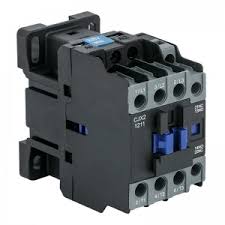Exploring the Effectiveness and Safety of Using Vinegar on Pool Filters

Strong 8k brings an ultra-HD IPTV experience to your living room and your pocket.
Introduction:
Maintaining a clean and well-functioning pool is essential for ensuring an poolking enjoyable swimming experience. Central to this maintenance is the pool filter, which plays a crucial role in removing debris and contaminants from the water. While there are numerous commercial products available for cleaning pool filters, some pool owners may wonder about alternative methods, such as using vinegar. In this article, we delve into the effectiveness and safety considerations of using vinegar on pool filters.
Understanding Pool Filters:
Before delving into the specifics of using vinegar, it's important to understand the role of pool filters. Pool filters are designed to capture and remove impurities from the water, including dirt, leaves, insects, and even microscopic particles. There are three main types of pool filters: sand filters, cartridge filters, and diatomaceous earth (DE) filters. Each type operates differently but serves the same purpose of keeping the water clean and clear.
What is Vinegar?
Vinegar is a versatile household product that has been used for cleaning and disinfecting purposes for centuries. It is typically made through the fermentation of ethanol, resulting in acetic acid, which gives vinegar its characteristic sour taste and strong odor. Vinegar is known for its acidic properties, making it effective at dissolving mineral deposits, breaking down grease, and killing certain types of bacteria and algae.
Using Vinegar on Pool Filters:
Pool owners may consider using vinegar as a cleaning agent for their pool filters due to its acidic nature and purported effectiveness in removing scale and mineral buildup. However, the suitability of vinegar for cleaning pool filters depends on several factors, including the type of filter and the specific issues being addressed.
For sand filters, vinegar may not be the most effective cleaning agent, as sand filters primarily rely on backwashing to remove debris trapped in the sand bed. Additionally, the acidity of vinegar could potentially damage the internal components of the filter or alter the pH balance of the pool water if not properly diluted and rinsed.
Cartridge filters, on the other hand, may benefit from occasional vinegar treatments to remove stubborn deposits and stains. Vinegar can be diluted with water and used to soak the filter cartridge, helping to dissolve calcium and mineral buildup. However, it's important to thoroughly rinse the filter after cleaning to remove any vinegar residue that could affect the water chemistry.
DE filters, which use a fine powder called diatomaceous earth to trap impurities, can also be cleaned with vinegar. Similar to cartridge filters, vinegar can be diluted and used to soak the DE filter grids or elements, helping to remove accumulated debris and scale. Again, thorough rinsing is essential to ensure that no vinegar residue remains in the filter.
Safety Considerations:
While vinegar is generally safe for cleaning purposes, there are some important safety considerations to keep in mind when using it on pool filters:
Dilution: Vinegar should be diluted with water before use to reduce its acidity and minimize the risk of damage to the filter or pool equipment.
Rinsing: After cleaning the filter with vinegar, thorough rinsing is essential to remove any residue that could affect the water chemistry or cause irritation to swimmers.
Compatibility: Not all pool filters are compatible with vinegar, so it's important to consult the manufacturer's guidelines or seek professional advice before using vinegar as a cleaning agent.
Protective Gear: When handling vinegar or any cleaning solution, it's advisable to wear gloves and eye protection to prevent skin and eye irritation.
Conclusion:
Using vinegar on pool filters can be an effective way to remove scale, mineral buildup, and other impurities, particularly for cartridge and DE filters. However, it's important to exercise caution and follow proper procedures to ensure safety and prevent damage to the filter or pool equipment. Consulting with a professional or referring to the manufacturer's guidelines can help determine the suitability of vinegar for cleaning your specific type of pool filter. With proper care and maintenance, your pool filter can continue to provide clean and clear water for swimming enjoyment.
Note: IndiBlogHub features both user-submitted and editorial content. We do not verify third-party contributions. Read our Disclaimer and Privacy Policyfor details.







